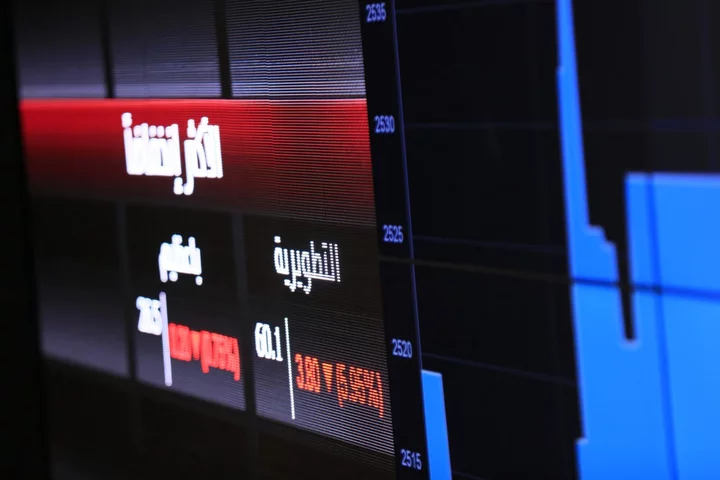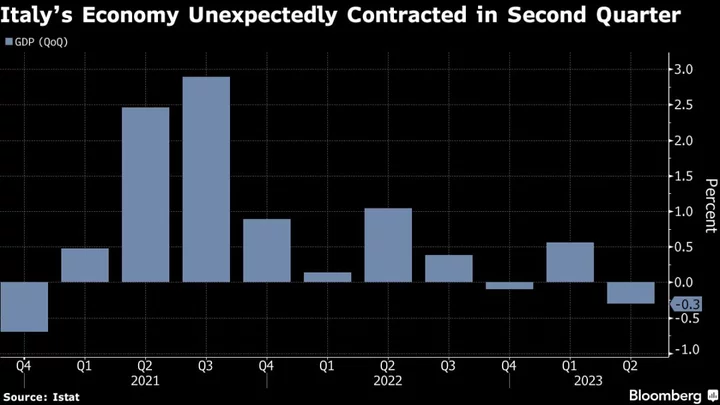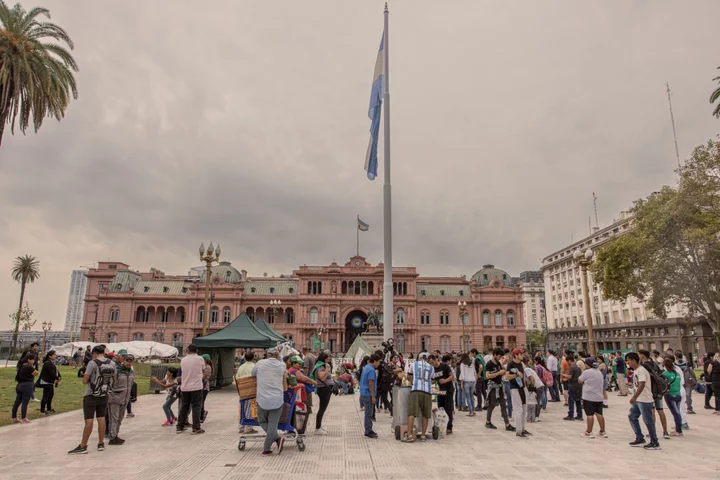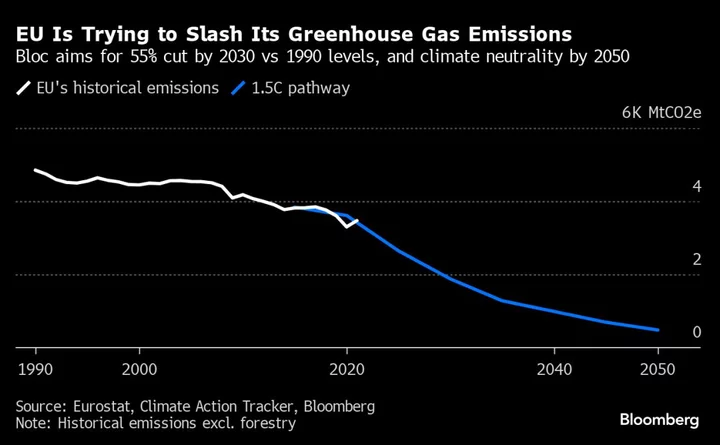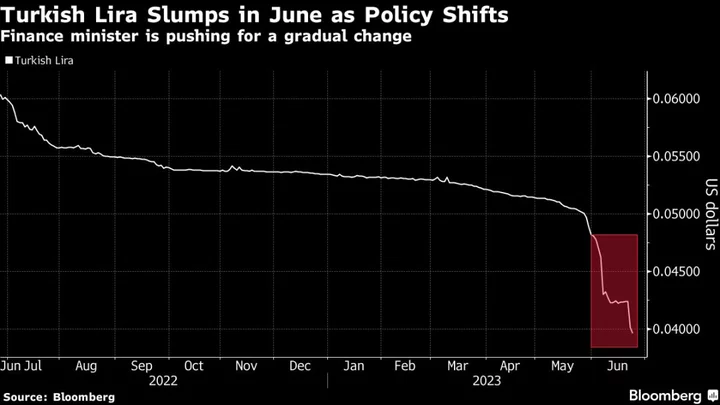The fallout from Saturday’s surprise attack on Israel by the Palestinian group Hamas reverberated through Middle East markets, sending stocks sliding and setting the tone for what’s likely to be a volatile week.
Major equities gauges in the region fell Sunday, led by a 6.4% drop on Israel’s benchmark TA-35 stock index, its biggest loss in more than three years. The Tadawul All Share Index in Riyadh fell 1.6% while stocks in Qatar and Kuwait also weakened. The EGX30 gauge in Cairo slumped 2.6% after an Egyptian policeman opened fire on a group of Israeli tourists, killing two of them, in the Mediterranean city of Alexandria.
The Hamas assaults mark the deadliest attack on Israel in decades and threaten to escalate into a broader conflict. Israeli Prime Minister Benjamin Netanyahu declared that his country would launch a prolonged military campaign against the militant group and expressed confidence Israel would win. President Joe Biden pledged “rock solid” US support for Israel.
The conflict comes at a time of diplomatic sensitivity and also a moment of historic division within Israel over Netanyahu’s coalition with Israel’s far-right and their efforts to overhaul the nation’s judiciary. The Israeli shekel has slumped toward a seven-year low in recent days, ahead of the scheduled reopening of Israel’s parliament later this month.
“Divisions in Israel’s politics and security structure will be papered over while the military response in Gaza is ongoing, but they are not going away,” said Hasnain Malik, a Dubai-based strategist at Tellimer, a provider of research and data on emerging markets to investors. “That will remain a vulnerability for all Israeli asset prices.”
The war in Gaza will have a greater effect on Israeli markets than previous military operations, says Ori Greenfeld, the chief strategist at Psagot Investment House. Should the fighting spread, Israel’s economy will likely be hurt by a drop in private consumption and in private and public investments, he said.
“If Israel needs to make decisions that are not necessarily aligned with the international community, there could also be a drop in international investments and in Israel’s trade relation with different countries,” Greenfeld said. “This might also affect the shekel which we expect to see weaken.”
Hamas’s incursions struck Israel at a fragile moment. Netanyahu’s efforts to weaken the judiciary have sparked mass protests and unnerved foreign investors. The shekel is already one of the biggest losers this year among a basket of 31 major currencies tracked by Bloomberg.
Netanyahu’s plans for greater regional integration with Arab and Muslim neighbors now also face a severe test. Israel is in negotiations with the US and Saudi Arabia on a complex three-way deal in which Washington would offer security guarantees to Riyadh. The Saudis, for their part, would normalize relations with Israel. Israel has also been talking with Turkey and others about gas exports to Europe along with corridors for trade from Asia.
“Regional risk goes up for a while,” said Tellimer’s Malik.
The fighting has left hundreds dead on both sides. Palestine suspended trading on its stock exchange on Sunday, citing “security conditions in the Palestinian territories,” and will reopen on Monday.
--With assistance from Srinivasan Sivabalan.
(Updates prices, detail of shooting attack in Egypt in second paragraph)

